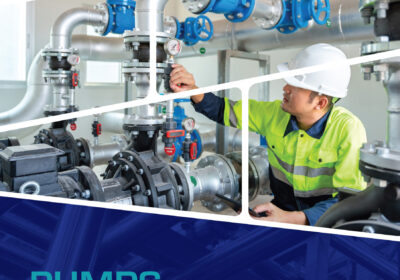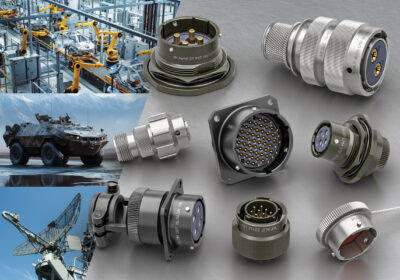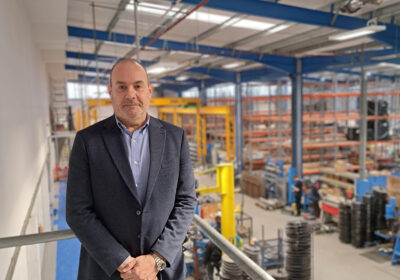Maintaining your equipment and machinery can greatly improve your sustainability efforts. For example, scheduling preventative maintenance save 20% of raw material usages, as well as 30% decrease in greenhouse gas emissions.
So, if you’re looking achieving a more sustainable outlook in your operations could begin than what value could preventative maintenance achieve for your business.
Pieter du Plessis, Group Product Engineer at hardfacing applications expert Welding Alloys looks at the importance of minimising equipment downtime to ensure energy is used as efficiently as possible.
Wear parts and components
Whether it is machining equipment, cement plant components or components in the recycling industry, most industries are generally exposed to challenging wear environments.
Many parts and components of machinery experience continuous friction, heat, and stress during operation and will gradually wear out over time. As part of an effective preventative maintenance strategy, these require inspection, maintenance, and repair to delay or avoid costly replacement. to keep the machinery running efficiently.
Energy efficiency
One of the most beneficial advantages of keeping your machinery in order is that it can improve your energy efficiency.
Pieter du Plessis, Group Product Engineer at Welding Alloys, explained: “Performing constant maintenance checks on your tools and equipment will allow your assets to always operate at the height of their efficiency.
“Well-maintained machinery tends to consume less energy as everything is ticking as it should. In turn, this will significantly lower your carbon emissions and leave you with a more affordable bill at the end of the month. When comparing the energy requirements of replacement versus the maintenance and repair of components, it is always more beneficial to adhere to preventative maintenance when aiming to improve sustainability goals.
“It’s also worth noting that preventative maintenance to reduce downtime can actively help with resource conservation. Any inefficiencies and hiccups in your processes can waste lots of precious energy, as your assets will need to work twice as hard to overcome the fault and keep operating as usual.
“So, regular maintenance tasks can nip any potential problems in the bud and promote a more sustainable use of your resources.”
Equipment longevity
Looking after the wellbeing of your tools will no doubt increase their life expectancy.
In fact, from regular inspections to cleaning and timely repairs, preventative maintenance measures allow you to identify issues before they escalate into bigger, more troublesome problems.
This means that you can monitor your equipment’s health and tackle any hazards on the spot, which will then favour optimal longevity and reduce the need for frequent, pricey purchases.
In this respect, extending the lifespan of your machinery will cut your wastage levels, too. For example, regularly replacing worn-out welding torches with brand-new assets can generate significant waste, putting a dent in your sustainability efforts.
Employee training
Educating people about the impact of downtime on the environment might encourage them to review the performance of their own tools, too.
Fostering a culture of sustainability within the business is a crucial step to make preventative maintenance a priority task on everyone’s agenda. This will empower workers to contribute to the company’s eco-friendly goals, as they will feel the responsibility to promote sustainable behaviours in their operations.
If you’re in a senior position, provide your co-workers with training sessions on maintenance and environmental best practices. With all the right resources and knowledge, they are more likely to embrace an eco-conscious mindset and play an active role in preventing energy-consuming downtime.
Reduced emissions and water consumption
Preventative maintenance programmes can minimise emissions and aid your carbon footprint.
Underperforming machineries tend to emit higher levels of pollutants, affecting the wellbeing of your surroundings. This is particularly relevant in the welding industry, as ill-kept assets can generate fumes and particulate matter.
Conversely, well-maintained equipment is more likely to operate in a clean, effective fashion. By monitoring your machinery’s health and performance, you can avoid leaks, spills, and other malfunctions that could harm the environment.
What’s more, preventative maintenance can help minimise water consumption, too. Every day, just under three billion litres of water, equivalent to 1,180 Olympic swimming pools, are lost due to leaks.
However, by monitoring your tools on a regular basis, you can identify and rectify any problems causing water leaks and ensure they’re adequately conserved to drive your operations forward.
From improving your business’s energy efficiency to extending your equipment’s longevity, there are many ways in which preventative maintenance can support your sustainability efforts.
By checking the health of your assets consistently, rather than when the damage is done, you can minimise downtime, save money on expensive repairs, and make a difference in the wellbeing of your surroundings.

Sources
https://fiixsoftware.com/blog/maintenance-and-sustainability-framework/
https://www.bbc.co.uk/news/business-53274914





